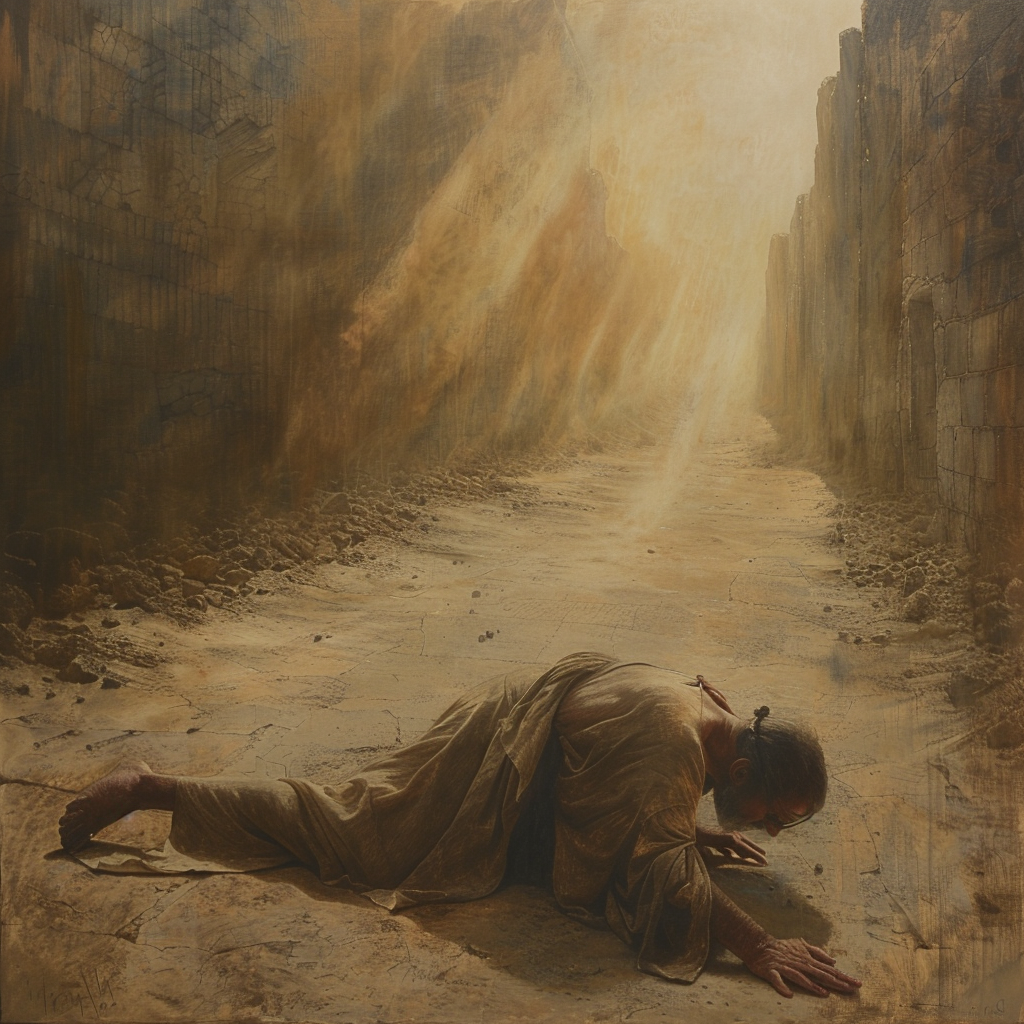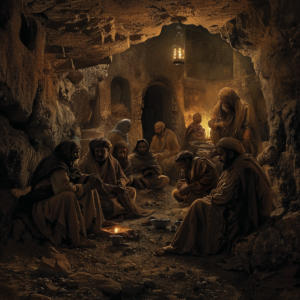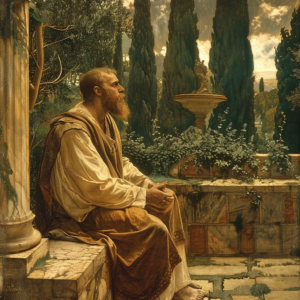
Under the vast expanse of the Roman sky, Saul of Tarsus walked with a purpose, his gaze stern and unwavering. Known for his rigorous defense of Jewish traditions and his zealous persecution of the nascent Christian sect, Saul was a man feared by many. Yet beneath this stern exterior, a storm of conflict raged—his convictions shaken by the whispers of change brought by those he pursued.
It was on the dusty road to Damascus that Saul’s world would irrevocably transform. Blinded by a radiant light from the heavens, he fell to his knees as a deep and resonant voice pierced the silence around him. “Saul, Saul, why do you persecute me?” the voice asked, echoing in the depths of his soul. It was Jesus, the very figure whose followers Saul had tormented, reaching out from beyond the veil of death.
This divine encounter marked the beginning of Saul’s metamorphosis. Struck blind, he was led by his companions into Damascus, where he spent three days in darkness, neither eating nor drinking. In this abyss of blindness, Saul’s eyes were opened to a new spiritual vision. Ananias of Damascus, a disciple of Jesus, visited Saul, laying hands upon him. Scales fell from Saul’s eyes, and he saw the world anew—not only with physical sight but with a profound spiritual clarity.
Renamed Paul, his life took a dramatic pivot. The hunter became the hunted, the persecutor turned preacher. Paul’s journeys across the Roman Empire, from the cobbled streets of Jerusalem to the far reaches of Greece and Rome, were marked by shipwrecks, imprisonment, and trials. Yet, his resolve remained unshaken, fueled by the grace that had first intercepted him on the road to Damascus.
Paul’s letters to the early Christian communities—thoroughly infused with theological insights and pastoral care—wove a complex tapestry of the new covenant he now served. His teachings, often born from the crucible of his missionary hardships, underscored themes of redemption, the transformative power of faith, and the boundless grace of Christ.
As an elder statesman of the early church, Paul’s reflections in his letters to Timothy epitomized his journey from a rigid Pharisee to a devoted apostle of Christ. “I was once a blasphemer and a persecutor and a violent man,” he wrote, “but I was shown mercy because I acted in ignorance and unbelief.”
Conclusion: A Legacy of Grace
Paul’s final days, traditionally believed to have ended in martyrdom in Rome, sealed his testament of faith—a faith tested in the fires of adversity and persecution yet emerged purer and stronger. His legacy, encapsulated in the epistles that continue to guide millions, is a testament to the power of divine grace and the profound metamorphosis it can engender in the human heart.
No tags for this post.



